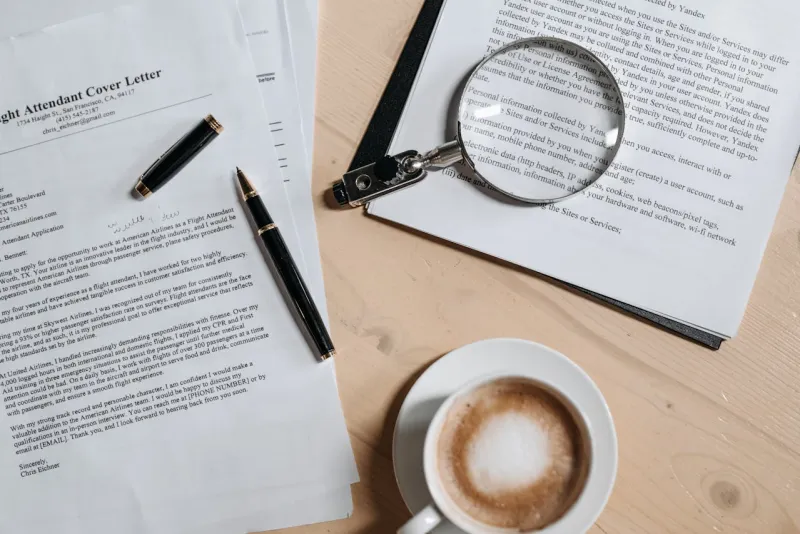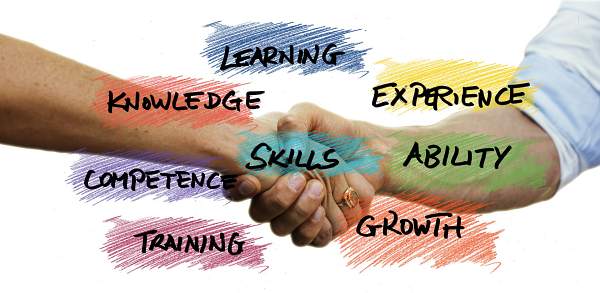8 THINGS YOU CAN DO TO ACE ANY JOB INTERVIEW
The happiness when receiving a call marking the job interview gives rise to endless anxiety. After all, it’s only a few minutes to prove your worth, impress the recruiter and seize the opportunity.
However, to do well at the job interview, you need to think about what you will say, how you will present yourself, what you will wear, how you will organize your speech, and prepare for the most varied questions, in addition to taking a deep breath, of course. Check out the tips below to show off your full potential and nail it.
8 THINGS YOU CAN DO TO ACE ANY JOB INTERVIEW
1. Preparation starts with the curriculum.
To do well in an interview, preparation, according to experts, begins when writing the resume; the document serves as the guiding thread of the main points addressed in the conversation with the recruiter.
“The first step is to structure the curriculum. When writing it, reflect on everything that happened in her career, what the meanings were for her professional life,” says Axel Werner of Kienbaum.
2. Get to know your audience
Learn everything you can about the company, turn to all sources, use Google to find out, and contact friends or other contacts; in addition to being informed on the company’s website or social networks, see what others say about it. Thus, you will have an overview of the company.
Survey the interviewer, learn a little more about your career, training, and interests. In the first five minutes of the interview, you can cite something in common, such as the same college, joint ventures, or even interests.
No matter what role you are applying for, you must know more about the company before the interview. Imagine a cosmetics company buying one of the products based on it less chosen and bringing up a review about it. So if you’re hired, your goal will be to create satisfied customers, so using the products will be easier.
This is a way to create rapport, a technique used to create a connection of attunement and empathy with another person.
3. Anticipate the interview questions
Even if you’re used to having multiple interviews, it’s essential to think long and hard about your skills, achievements, and responses. Have the answer to the question “Tell me about yourself” well prepared, which may be a common question.
Don’t get carried away by the classic “What’s your biggest weakness?” think of something you’re working for better. For example, perhaps your strong point has never been to speak in public, but you have offered to run meetings to help you improve in recent years.
Research usual questions in job interviews, but don’t focus on the answers, instead, make notes or relevant points and have them on hand for the interview.
- Think about all the questions an interviewer can ask you about your future, where you’d like to be in a few years, about your personal life;
- To help, make a list of all the possible questions an interviewer can ask and create strategic answers. Then train so that when talking, the answers flow naturally.
Let us imagine the recruiter asking you why you are interested in the job and the company. Therefore, consider the answer to this question in advance and identify critical factors that make you an excellent option. And please, do not say “Because I want to get rich.”
4. Practice
Practice in the mirror! Simulate the interview with a friend; you will be much more prepared when you answer specific questions after you have already answered them hundreds of times. This preparation will help you clarify your thoughts and make you more comfortable during the interview.
5. Get dressed and act together.
Plan what you will wear and choose to inquire about the company’s dress code to fit within your normal. Ensure the clothes you are wearing are clean, pressed, and adjusted; please do not wear that outfit you have been keeping for years in your closet for a special occasion.
Don’t forget the details: polish your shoes, make sure everything is alright with your clothes, and make sure your nails are presentable.
Spoil yourself a little, and you’ll feel better looking good. If you think you need a facial, a haircut, a shave, or even a new outfit, do it!
6. Study your curriculum and your achievements
It sounds like a simple tip, but it’s not because the important thing is to know how to tell your story in an organized, direct, and transparent way. Study your curriculum and your achievements; it sounds like a simple tip, but it’s not because the important thing is to know how to tell your story in an organized, direct, and transparent way.
7. Make a more precise analysis of your profile
You can do this based on the feedback you’ve received in the latest formal performance reviews. Also, try to remember some informal remarks about your profile made by work peers, team members, relatives, spouses, and close friends.
Suppose you’ve never had any performance assessment within the company. In that case, it’s worth asking for a sincere opinion from current leaders and former managers and asking them about your strengths and those that need to be worked on.
Having a broad view of ourselves is just as essential to perform well in selective processes as in our entire corporate life.
8. Highlight strengths that differ from most
With all this information you have on your profile, think about what sets you apart from others. Considering the selection process, most likely, all candidates who will compete with you will have a similar professional history, with degrees and equivalent technical knowledge.
It may even be that you went to the same university. At that moment, what will differentiate one candidate from the other are precisely the behavioral aspects.
LEARN More about how to successfully nail any job interview from the resources below.
-
5 Reasons why you’re never called for a Job Interview

Who never wanted to know why they’re never called for a job interview, right? The vacancy ad is there, and you make the resume, send it and spend an eternity waiting for a response that never happens. If the situation is recurring, it is essential to reflect on why companies are not feeling interested in…
-
Here’s a Winning Motivation Letter Guide

Also known as a cover letter, the motivation letter is widely used by those who intend to apply for a job vacancy or at a university abroad. Writing an excellent motivational letter without spelling errors and objectives is not an easy task; many candidates worry at this point. What must it contain? This article will…
Conclusion
The interview is your opportunity to highlight points that enrich your profile and bring some competitive differentiation factors into the process. Here every tiny detail counts, such as how you talk about yourself, personal and professional experience, body language, the knowledge you have about the position you aspire to fill, and the company.
Reference and Further Reading
AceThePresentation. 11 Best Body Language Tips for Engaging Presentations.
How to Ace your next Interview: Tips and Examples. Indeed.com
Improving Emotional Intelligence (EQ). HelpGuide.
Top 8 Interpersonal Skills For The Workplace. BigThinkEdge









